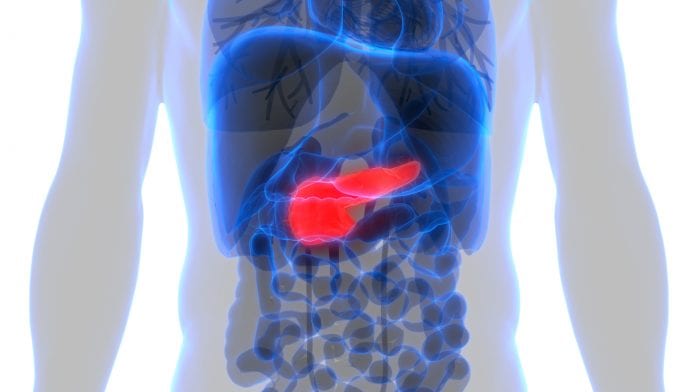
A new research partnership has been launched with the aim of developing a blood test to detect Type 3c diabetes.
The University of Liverpool has entered into a two-year option agreement with Australian diagnostics firm BARD1 Life Sciences Ltd for a Type 3c diabetes blood test. The test will use patented technology developed by researchers in the University of Liverpool’s Institute of Systems, Molecular and Integrative Biology.
What is Type 3c diabetes?
Type 3c diabetes is a condition caused by damage to the pancreas. At present, knowledge of the condition is limited and it is often misdiagnosed as Type 2 diabetes. Currently, there is no test to identify Type 3c diabetes. Type 3c diabetes is linked to many other conditions related to the pancreas, including pancreatitis; pancreatic cancer; cystic fibrosis; and haemochromatosis.
Research by the University of Liverpool has reported that the combination of adiponectin and interleukin-1 receptor antagonist (IL-1Ra) showed a high diagnostic potential for distinction of T3cDM from T2DM (AUC = 0.90), with optimal sensitivity and specificity of 83.7% and 90.0% respectively.
Under the agreement, the University and BARD1 will evaluate two novel protein biomarkers that, in preliminary testing, have shown to accurately distinguish T3cDM from T2DM in individuals who are newly diagnosed with diabetes.
The project will be led by Eithne Costello, Professor of Molecular Oncology at the University of Liverpool, who is lead researcher on the UK-Early Detection Initiative (UK-EDI) which is collecting relevant samples which will allow validation of the T3cDM markers in larger sample sizes.
Important implications for pancreatic cancer research
Professor Costello said: “In the field of pancreatic cancer, there is currently widespread interest in finding ways to detect pancreatic cancer in individuals over 50 years who are newly diagnosed with diabetes. The UK-EDI study will collect pre-diagnostic samples and data from individuals who will subsequently receive a diagnosis of pancreatic cancer. This represents a significant step forward for the field of early pancreatic cancer detection and diagnosis.”
These findings are of huge significance for future pancreatic cancer screening, as certain individuals with Type 3c diabetes are at increased risk of developing pancreatic cancer. Known risk factors for pancreatic cancer include smoking, obesity, diabetes, and chronic pancreatitis (the predominant cause of Type 3c diabetes).
An accurate and reliable Type 3c diabetes test could be used to identify an at-risk population for a routine screening programme for pancreatic cancer. There are no current screening tests available for pancreatic cancer and BARD1 is investigating two novel approaches for screening pancreatic cancer using its SubB2M and EXO-NET technologies, with the end goal of introducing a world-first screening test for the disease.
BARD1’s Chief Scientific Officer, Dr Peter French, said: “In and of itself, a test for Type 3c diabetes could be a potential blockbuster diagnostic assay, as there would be a strong clinical case for using it to screen all individuals diagnosed with new-onset diabetes. Those individuals that test positive for Type 3c diabetes could then be placed in an enhanced surveillance programme and screened annually for pancreatic cancer using the company’s specific pancreatic cancer tests currently in development. Clearly this approach could provide a significant improvement in outcomes for patients with both diseases.”
This research is being funded by grants from Pancreatic Cancer Action (PCA), Pancreatic Cancer UK (PCUK) and North West Cancer Research (NWCR). Further validation work is being supported by Cancer Research UK (CRUK).









